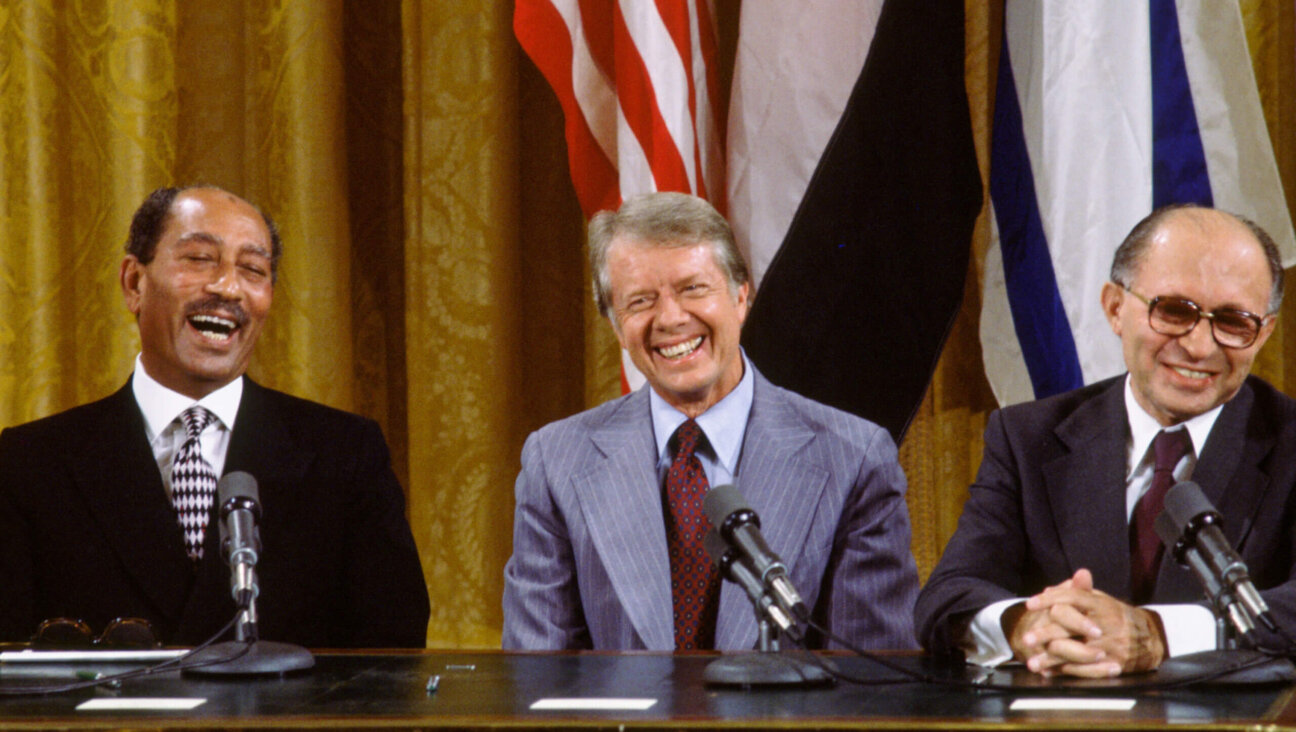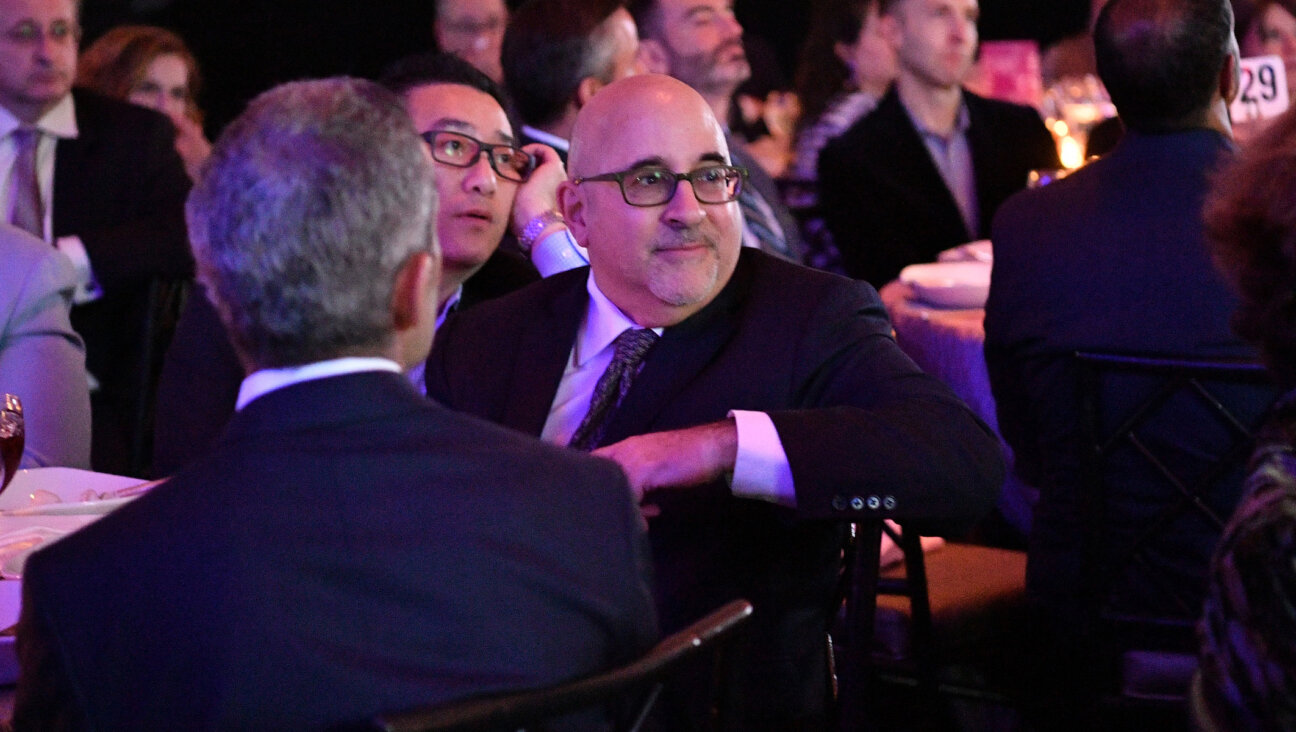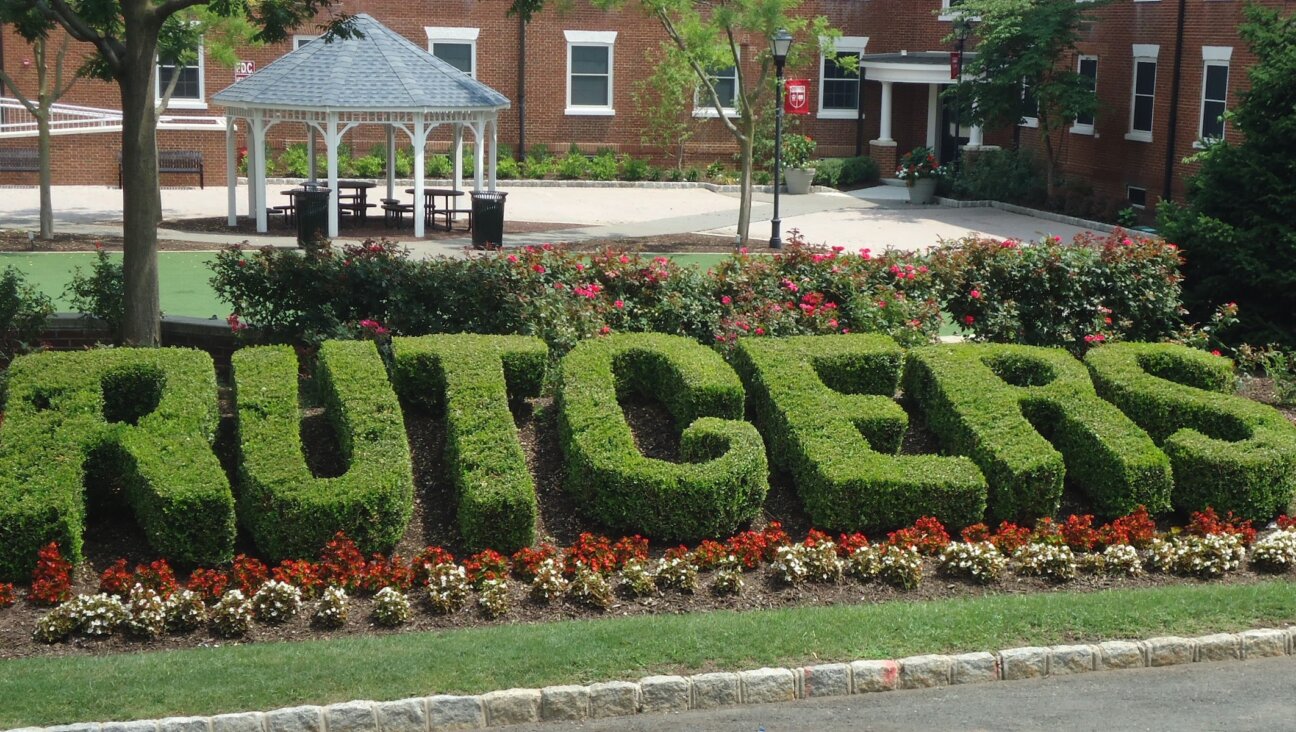Refusing To Let Go of Tomorrow
With my eyes closed, just listening to the singing, it is hard to imagine that I am not, in fact, at a Kabbalat Shabbat service at B’nai Jeshurun, the Upper West Side’s deservedly fabled synagogue. But on opening my eyes and glancing out the open door, the illusion is revealed.
I am in fact in a moshav — the very first moshav in (then) Palestine, founded in 1921 — called Nahalal. The hundred or so people who’ve gathered to greet the Sabbath make up for in enthusiasm what they lack in numbers. (This being the Friday evening during Passover, many regular attendees are “on the road,” as Israelis are wont to be at every chance.)
I had arrived in Israel a bit after 5 the previous morning, managed to catch some sleep during the day, and was delighted to have been invited to Nahalal for dinner with several dear friends. I am staying not far away, in Kvutzat Geva, sort of in the middle of Emek Yizre’el, the Valley of Jezreel, Nahalal being at it western end. The Emek, as the region is known, is in many ways my favorite place in Israel.
Sitting at evening-time in a restaurant called Kimmel on the slope of Mount Gilboa, you have a panoramic view of nearly the entire valley — and, looking almost due north, Nazareth, and eastward, Mount Tabor. Lights twinkling seductively near and far, I invariably am washed over by nostalgia, and the distinctive quality of nostalgia in the Emek is that it is guilt-free.
Memories are plentiful in every quarter and corner of Israel, which I have been visiting for periods ranging from nine months to three days for more than half a century. But memories happen in the brain, whereas nostalgia happens all over the body. Often, it is for times long since passed, quite disconnected from current realities.
In such cases, nostalgia is a pointless indulgence. But here in the Emek, hints of the past persist everywhere. There are the immediate biblical references, of course, and dozens of classic folk songs that rhapsodize about the Emek’s beauty.
A century ago, this was marshland, infested with malarial mosquitoes; now it exudes health. The folks at the Nahalal service come from an array of kibbutzim and moshavim and towns throughout the region; most of them are workers rather than professionals. Their children come, and bring their friends. They seek, with apparent success, to reclaim the language of tradition while remaining ideologically secular.
And on and on. I have started my visit at Geva, as has become my routine in recent years, so that I can feel grounded before the meetings, conferences, visits, reunions that crowd my calendar during my three-week-long stay. The meetings and the conferences and the visits will quickly bring me out of my nostalgic reverie, devoted as they nearly exclusively are to “the matzav,” the political situation.
I have come in particular to talk with my friends on Israel’s left, largely to assess whether the nation’s precipitous turn rightward of the recent period is reversible. For if it is not, then I tremble for the train wreck that is in store. Yet in recent weeks, there have been several signs that the left is stirring, including an important document called the Israeli Peace Initiative, intended as an Israeli response to the Arab Peace Initiative (which was itself a somewhat amended version of the Saudi initiative); a statement by prestigious thought leaders, including 17 winners of the Israel Prize — a statement that amounts to a declaration of independence from the occupation; a new, eclectic, growing and strategically sophisticated group of activists based in Tel Aviv; an apparent revival of the diverse organizations that have long cautioned against the occupation and condemned the ultimately doomed settlement policies of Israel’s governments.
Does all this amount to anything, or is it too late? Is the notion of two sovereign states for two sovereign peoples finally obsolete, shredded by the steady encroachment of “facts on the ground,” crumpled by the weight the zealots have brought to bear? And if so, what becomes of a democratic Jewish state? Does it, too, become an occasion for disconnected nostalgia?
For the next three days, those questions remained in storage, while I was in Geva. There, final preparations were under way for a concert by the Gevatron, the Geva-based and ever popular musical merchant of connected nostalgia. It’s their annual end-of-Passover concert, and they were expecting 2,000 or more people, coming from all over the country, I am guessing for some variant of the reason that has brought me here.
As the song goes, “Those were the days, my friend, we thought they’d never end.” Were we wrong to think that? It’s hard, very hard, to let go of the days that were, of yesterday; it’s infinitely harder to let go of tomorrow, of the days that were meant to be. I am entirely unwilling (unable, too, I suspect) to render that tomorrow yet another occasion for nostalgia. No, sir, not yet.
A message from our Publisher & CEO Rachel Fishman Feddersen

I hope you appreciated this article. Before you go, I’d like to ask you to please support the Forward’s award-winning, nonprofit journalism so that we can be prepared for whatever news 2025 brings.
At a time when other newsrooms are closing or cutting back, the Forward has removed its paywall and invested additional resources to report on the ground from Israel and around the U.S. on the impact of the war, rising antisemitism and polarized discourse.
Readers like you make it all possible. Support our work by becoming a Forward Member and connect with our journalism and your community.
— Rachel Fishman Feddersen, Publisher and CEO






















